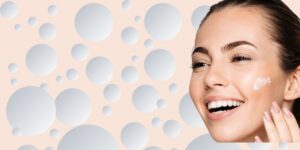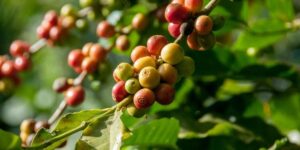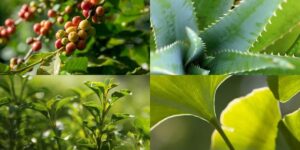Introduction
Botanical extracts are complex solutions of chemical ingredients extracted by various methods from plants known to exhibit some type of skin active effects. The use of plant extracts in skincare dates back thousands of years 1 when they were traditionally used to treat specific skin ailments. The plant kingdom offers an abundant source of substances that offer novel cures for many skin disease types2. Modern chemical extraction, analysis and identification techniques have led scientists to search the earth for new flora species and new active ingredients for skincare. Botanical ingredients are often considered more “natural” than chemical drugs as they come from a “natural”. source.
Botanicals incorporated into skin care products are often referred to a cosmeceuticals3. These are defined as intermediary substances between drugs and cosmetics 2. There is a very large number of botanical extracts and ingredients that have demonstrated skincare benefits. However, keeping these ingredients stable and delivering them through the skin barrier in a topical, day-to-day, cosmetic application is more challenging.
“When considering the formulation design for natural anti-oxidants, it is important to develop vehicles that can stabilise the anti-oxidants and improve permeation into the skin”.10
Natural Verses Synthetic
Botanical extracts can be a variable source for skincare biological active ingredients. Modern chemical analysis and synthesis techniques have allowed chemists to synthesise many biological actives and not rely on sourcing them from variable botanical extracts. Most vitamin ingredients (eg. Vitamins C, E and niacinamide) are now synthesised for skincare use. These synthetic ingredients are identical in structure and effect to the natural forms but have the added benefit that they can be added to the final product in known concentration.
As opposed to single Vitamin additives, many botanical extracts contain a highly complex mixture of complex and active chemical constituents that act in unison to deliver the desired skin benefits. These extract combinations and their benefits are difficult to copy synthetically and so many natural botanical extracts are still used in skincare products. The actual effectiveness of a given botanical extract, delivered in topical skin application, is determined by a complex array of factors unrelated to the chemical properties of the individual ingredients. Formulation considerations are far more complex than most dermatologists4 and manufacturers realise.
“Botanical ingredients have been used for thousands of years in skincare for their convenience as well as the diversity and abundance in compounds with biological activity.” 1
The following is a list of some of the commonly used botanical extracts used in topical skincare products:
Aloe Vera
Aloe vera is probably the widely used botanical extract and is extracted from the aloe vera plant4. Aloe vera has anti-inflammatory properties that make it popular in treating sun-damaged skin. It also has skin moisturising and skin depigmenting properties5. Like many botanical extracts, the skin benefits of aloe vera are dose dependent4 and products with low concentration of extract will fail to deliver the claimed benefits.
Green Tea Extract
The benefits of green tea have been know to the Chinese for centuries. The constituents of green tea have been shown to have strong anti-oxidant properties and are potent suppressors of UV oxidation damage2. They can repair UV-induced DNA damage and reduce UV-induced collagen damage. They have also been show to anti-inflammatory, anti-carcinogenic and depigmentation properties. Whilst green tea offer numerous skincare benefits, at higher concentrations, green tea extract can oxidise and cause the skincare product to become dark in colour; perhaps an undesirable quality. Green tea extract stability is highly formulation dependent but it can penetrate the skin6.
Gingko biloba
Gingko biloba extract contains a complex mixture of anti-oxidant anti-inflammatory compounds. It has been recognised for centuries in China as having strong medicinal properties. It is commonly claimed to increase skin collagen and to enhance the appearance of skin4.
Ginger Extract
Ginger is another botanical extract that has a long history in Chinese medicine for its medicinal properties. Ginger contains a complex mixture of biological actives capable of exhibiting multiple biological activities including anti-oxidant, anti-inflammatory, antimicrobial, anticancer and neuroprotective effects 7. Active constituents from ginger are becoming increasingly studied due to the multiple benefits offered by this botanical extract.
Licorice Extract
Licorice extract contains several active components that suppress melanogenesis, the cause of most skin pigmentations5. It is a well know depigmenting agent found in many skin whitening products. It has fewer side effects than other depigmenting ingredients1. Like some other botanical extracts, use of licorice extract is concentration dependent and higher concentrations of licorice extract extract can oxidise and cause the skincare product to turn brown.
Skin Whitening Ingredients
There is an increasing number of bioactive ingredients that has demonstrated skin-lightening effects and are now used a single ingredients apart from botanical extracts. These include5 vitamin C, niacinamide, arbutin, aloesin (from aloe vera extract), hesperidin, tranexamic acid, N-acetyl glucosamine.
Resveratrol
Resveratrol is a biologically active chemical compound found in grape seeds, red wine and berries(another common botanical extract)2. It has strong antioxidant, anti-inflammatory and antiproliferative activities. It is being studied for dipigmenting, chemopreventive and anticancer properties.
Caffeic and Ferulic Acids
Caffeic and ferulic acids are natural organic acids that are strong antioxidants and can penetrate the stratum corneum8. These acids offer effective topical protection against UV-induced radiation damage, the primary cause of skin aging. Nano-encapsulation of caffeic acid has been shown to offer superior topical delivery and skin release9.
Discussion
Plant extracts have been used for centuries to treat many skin ailments. Biological extracts are a recent innovation designed to deliver these skin benefits in the form of fast and easy topical application. However, there are serious challenges to be overcome before these skin benefits can be delivered via topical application. Product formulations must be designed such that they stabilise the biological actives and then cause these active constituents to permeate the skin barrier.
“Advances in nanotechnology have opened new opportunities for the delivery of molecules to the hair follicle as they can accumulate into these structures releasing drugs for an extended period.”9
The Solution to Formulation Challenges
Traditional formulation methods have fallen short in being able to stabilise botanical extracts and facilitate skin permeation. Our Vitamin C Serum and our C E Ferulic Serum contain botanical extracts and anti-oxidant organic acids but use next generation, nano-formulation technology to overcome these challenges. Our nano-encapsulated Green Micelle™ formulations stabilise botanical actives and facilitate skin penetration to more effectively deliver skin benefits. We Microemulsions with nano-encapsulation of active ingredients to provide both enhanced ingredient stability and superior skin penetration of the biological actives.
“Increased attention has been paid to nanomedicine as a method of applying antioxidants topically”.10
References
- 1.Ferreira M, Magalhães M, Oliveira R, Sousa-Lobo J, Almeida I. Trends in the Use of Botanicals in Anti-Aging Cosmetics. Molecules. 2021;26(12). doi:10.3390/molecules26123584
- 2.Allemann I, Baumann L. Botanicals in Skin Care Products. International Journal of Dermatology. 2009;48(9):923-934.
- 3.Draelos DZ. The Future of Cosmeceuticals: and Interview with Albert Kligman MD. Dermatol Surg. 2005;31:890-891.
- 4.Draelos DZ. Botanicals as Topical Agents. Clinics in Dermatology. 2001;19(4):474-477.
- 5.Zhu W, Gao J. The Use of Botanical Extracts as Topical Skin-Lightening Agents for the Improvement of Skin Pigmentation Disorders. Journal of Investigative Dermatology Symposium Proceedings. 2008;13(1):20-24.
- 6.Lambert J, Kim D, Zheng R, Yang C. Transdermal delivery of (-)-epigallocatechin-3-gallate, a green tea polyphenol, in mice. J Pharm Pharmacol. 2006;58(5):599-604. doi:10.1211/jpp.58.5.0004
- 7.Mao Q, Xu X, Cao S, et al. Bioactive Compounds and Bioactivities of Ginger (Zingiber officinale Roscoe). Foods. 2019;8(6). doi:10.3390/foods8060185
- 8.Saija A, Tomaino A, Lo Cascio R, et al. Ferulic and Caffeic Acids as Potential Protective Agents Against Photooxidative Skin Damage. Science of Food and Agriculture. 1999;79(3):476-480.
- 9.Carolina O, Spagnol C, Guillot A, Melero A, Corrêa M. Caffeic acid skin absorption: Delivery of microparticles to hair follicles. Saudi Pharm J. 2019;27(6):791-797. doi:10.1016/j.jsps.2019.04.015
- 10.Aljuffali I, Hsu C, Lin Y, Fang J. Cutaneous delivery of natural antioxidants: the enhancement approaches. Curr Pharm Des. 2015;21(20):2745-2757. doi:10.2174/1381612821666150428125428












